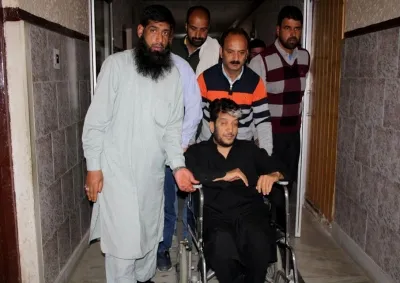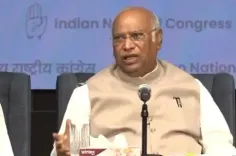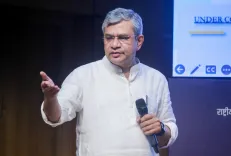Is J&K MP Raising Alarm Over Jailed Separatist Leader's Health?

Synopsis
Key Takeaways
- Aga Syed Ruhullah Mehdi expresses concerns over the health of Shabir Shah.
- Shah is facing serious medical conditions including prostate cancer.
- Legal and moral obligations exist for humane treatment of prisoners.
- Family involvement in medical decisions is advocated.
- A reminder of the ethical standards expected in treatment of vulnerable individuals.
Srinagar, June 25 (NationPress) The MP from the ruling National Conference (NC), Aga Syed Ruhullah Mehdi, reached out to Union Home Minister Amit Shah regarding the alarming health decline of imprisoned Kashmiri separatist leader Shabir Shah.
Shah was taken into custody in 2017 due to allegations of terror financing and inciting violence against the state. Currently, he is incarcerated in Tihar Jail, Delhi.
In his correspondence to the Union Home Minister, Mehdi emphasized, “At 70 years of age, Shabir Shah deserves medical treatment that is humane and dignified. His physicians have advised three surgeries for critical health issues, including life-threatening prostate cancer.
“Our nation has both legal and moral responsibilities, as per its Constitution and international agreements, to ensure humane treatment for prisoners,” he stated.
The MP earnestly requested the Union Home Minister to facilitate medical assistance for Shabir Shah at a facility that specializes in cancer treatment. He also urged for the involvement of Shah’s family in all medical decisions concerning his health.
“The true measure of a nation lies in its treatment of the most vulnerable. We must not fail this test,” added Ruhullah.
It is worth noting that several separatist leaders from Kashmir, including Yasin Malik and Nayeem Khan, are also incarcerated in Tihar Jail following their arrests for actions deemed as waging war against the nation.
Since the abrogation of Article 370 and the subsequent arrests of local separatist leaders, incidents of stone-pelting, public protests, and participation in terrorist funerals have significantly decreased in Kashmir.
A semblance of normalcy has returned to Jammu and Kashmir since August 5, 2019, when the Parliament revoked Article 370 and brought the region under direct Central governance by reconstituting the former state into two Union Territories: Ladakh and J&K.





